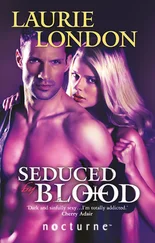Silence.
Nichol was feeling his patience leak from him, and he never lost his patience. He tried the door, but as he suspected, it was bolted shut. He slammed his hand against it in an uncharacteristic display of frustration. “Miss Darby, I must insist you come out at once!” he said sternly.
He heard something and pressed his ear to the door. Was he imagining it, or did he hear a low laugh from the other side of that door?
He definitely heard another chuckle behind him.
Patience deserted Nichol altogether. He prided himself on his ability to stay completely calm when others were at sixes and sevens—it was necessary to the sort of work that he did. But this annoyed him. He could feel the uptick of his heartbeat, the surge of heat to his neck. He would not be treated in this way by a young woman with nothing to recommend her, with no one to help her but him. He would not accept her bad manners in light of what he meant to do for her. He whirled away from the door.
Mr. Rumpkin was still standing there, still drinking. He dragged his sleeve across his mouth and said, “Told you.”
Nichol squeezed around him, then strode down the stairs.
He had also learned in his many years of solving problems that if one avenue for resolution closed, there was always another. The trick was to find it.
And oh, he would find it.
CHAPTER THREE
MAURA BRACED HER hands against the door and leaned in, pressing her ear against the rough wood, listening to footsteps receding.
When she couldn’t hear them any longer, she pushed away from the door and smiled wryly to herself. How dare Mr. Garbett send someone for her? How dare he not come himself to deliver his apology? Did he truly believe she would simply walk out of this spot of hell with a stranger? Go meekly along after all that had happened? Not without an apology, she would not, and she felt quite determined to never leave this room until she had it.
Except that she was even more determined to leave this wretched place, just as soon as she figured out how. She would not remain one night longer under Mr. David Rumpkin’s roof than was absolutely necessary.
Oh, how she despised that man! At first, she’d tried to make the best of it, and though she could hardly stomach her surroundings, she’d tried to be pleasing and accommodating. Just as she’d tried when she’d been taken in by the Garbetts.
On his deathbed, her father had told her to always be kind, to be grateful to the family that would take her in, to be as accommodating as he knew she could be. He’d reminded her that she had no standing in this world, and her existence depended on the benevolence of a man who was not her father. Maura had tried to be all of the things her father had recommended, but she was not their kin, and Mrs. Garbett had hated her from the moment she’d laid eyes on her. Mr. Garbett had been indifferent to her for the most part, even though from time to time he would defend her. Still, Maura had always believed Mr. Garbett liked her. Now she believed he had been precisely what he’d shown her: indifferent.
Given her experience in Stirling, perhaps she should have known that being grateful and accommodating would not serve her here, either. Rumpkin had shown himself almost at once to be an impossible, slovenly beast with no regard for her or that hapless lass who came from Aberuthen to cook his stews.
Still, she might have born it. She’d even had thoughts of tidying up the house a bit for him, as she was reluctant to sit on any seat. But it was Rumpkin’s drunken pawing of her that had prompted her to barricade herself in the room. She’d been caught completely off guard by it—he’d come up behind her, had put one hand on her arse, another on her breast and his greasy mouth on her neck.
A shudder ran through her as she recalled it.
Maura had found a strength she had not known she possessed in that moment. She had shoved the mountain of a man with all her might, and he’d stumbled backward, falling into his chair. “Donna be a shrew ,” he’d slurred, and as he’d tried to lever himself to his feet she had fled to her room at the top of the stairs, had bolted the door shut, then had pushed a bureau in front of it for good measure.
The next day she’d had to remove the bureau to accept the bit of food the lass had brought her and left outside her door. She’d taken the bread, had left the bowl of stringy stew untouched.
Oh right, she’d almost forgotten—she was starving just now.
Maura turned away from the door and looked at her prison. She had a small stack of books that were keeping her occupied, but which she’d soon finish. She was running out of wood for the hearth, her clothes needed washing and she’d lost all manner of decency. The clothes she’d been wearing the night he’d put his hands on her were discarded onto the floor, where they would remain, unless she resorted to burning them for warmth. She hadn’t bothered to dress her hair or don a gown over her stomacher and petticoat in days.
She fell onto the chaise longue at the end of the bed, and stared morosely at the ceiling with its peeling paint. She couldn’t survive in here much longer. Last night, she’d concocted an elaborate plan in her head, whereby she would will herself to make it to spring when the days would be warmer. She could simply walk out of this house once Mr. Rumpkin had fallen into unconsciousness with his fingers wrapped tightly around a bottle. But then she’d grown sullen, for spring was too far away, and there was an entire winter to endure.
She needed to devise another, better plan.
She had only a few coins, some shoes that were worthless for anything other than dancing or strolling around manicured gardens, one decent gown and one serviceable gown. The third gown she’d been allowed to leave Stirling with was the one lying in a heap on the floor.
As she lay there contemplating, she heard a sound that she would have thought was a rat scurrying by had it not come from outside the window. She slowly sat up, staring at the window. It couldn’t be. He wouldn’t , this Mr. Nichol Bain. Maura shot up from the chaise and hurried to the window. She opened it slightly, just enough to see out.
All she could see was an auburn head of hair as the man picked his way up the thick vines that covered the tower.
Bloody bounder. Mr. Garbett must have paid him handsomely to ferry her off to yet some other hell. She closed the window and latched it shut. If he thought she would open it to him, he was a fool. She went back to the chaise and plopped down onto her back, one bare foot on the moldy carpet, one arm slung across her body, waiting for the inevitable moment that he pounded on the window demanding entrance. She hoped he fell and landed on his arse. She hoped his fingers ached so much that it brought a tear to his eye.
She did not expect him to punch his fist through the glass, but that’s what he did, shattering the pane into a rain of chunks. That same fist reached through the opening for the latch and swung the window open. Maura was so stunned by this that she couldn’t move, and watched, dumbfounded, Mr. Nichol Bain’s acrobatic entry into her room. He paused just inside, brushed off his clothes, ran his hand over his bobbed hair, and then leveled a gaze on her that suggested he was quite perturbed at having to make an entry in this manner.
Neither of them said a word. Maura didn’t know what stunned her more—his bold entrance or his fine looks. His eyes were the palest green, his hair the shade of autumn. He stood well over six feet, and broad shoulders that looked even broader in a greatcoat tapered into a trim waist. He was perhaps one of the most handsome men she had ever seen.
But his expression was thunderous as he surveyed her lying there—she was still incapable of movement—and said, in a deeply timbred voice, “Feasgar math.”
Читать дальше












